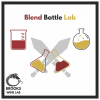Springhouse Green
By Wine Press Staff
Springhouse Cellar Winery, the newest addition to the downtown Hood River wine scene, has embraced a unique, sustainable business practice benefiting the environment, its customers and, arguably, the winery itself, through its 33 Club.
Winemakers James and Lisa Matthisen have always embraced green business practices, but somewhere along their venture, they realized that recycling glass bottles for reuse was just not enough.
“Although recycling glass bottles is much better than throwing them away, it just always seemed silly to me that all those nice vessels, first, must be broken down, crushed, sorted, cleaned, mixed with other raw materials, and then heated to high temperatures to make “new” glass bottles that are just like the old ones!” Lisa said. “Seems like a lot of trouble just to avoid rinsing!”
That’s when the light bulb turned on and the 33 Club developed. The 33 Club is a wine membership club with three components: First, any customer can join simply by purchasing a reusable bottle sold at the winery for $5. The bottle’s design encompasses a swing-top neck comprised of a wire bail and stopper that allows for efficient sealing and resealing and, much like a cork, aids in keeping the wine fresh.
Second, once in the club, members receive 33 percent more wine for every dollar spent.
“Our standard 33 Club bottle holds one liter of wine, which is 33 percent more than a standard 750-milliliter bottle.” James said. “And we sell refills for the same price as a 750-milliliter bottle, so members get more wine for free.”
Although the refillable bottles have more of an upfront cost for the Matthisens, the fine balance and overall savings comes from avoiding costly labels, corks, foil capsules and single-bottle uses. In fact, the refillable bottles are silk-screened with the Springhouse Cellar logo and mandatory government information, and only the grape varietal, vintage year, wine appellation and alcohol percentage is added on a small and easily removable label.
The third component to the 33 Club is in its use of sound wine technology. In the tasting room, the Matthisens have spigots to dispense their 10 different wines. The spigots are connected to small stainless steel kegs, which are stored in two coolers that are temperature controlled—one for white wines, the other for red wines. The system uses argon gas to gently push the wine from keg to spigot, avoiding exposure to air. The wine that fills the kegs is stored in larger, stainless steel tanks with floating lids, also carefully protected from contact with air.
Each year, the Matthisens attempt to estimate the amount of wine that should remain unbottled to satisfy current and future 33 Club members.
“Initially we underestimated demand,” Lisa said. “The 20 percent we left unbottled didn’t last the year.” Currently James and Lisa allocate 35 percent of their wine for the Club, amounting to 10,000 bottles that never need bottling in the traditional sense.
“The customers have been great,” James said. “For many, it reminds them of traveling in Europe, where taking your jug to the winery is tradition. And they are so proud when they come back, empty bottle in hand.
“My favorite is the woman who loves the club because her neighbor can no longer check out the quality and quantity of wine bottles in her recycle bin.”
James and Lisa have created a business system where there is no need to recycle, but unbeknownst to them, they have found other profound benefits to their system. Wine for wine tasting comes from the same spigots, which means there are no uncorked, half-full bottles at the end of the day.
“We don’t have to drink up the leftovers, dump them, or serve them the next day,” James said. “We are saving bottles and a fair bit of wine. More importantly, our customers never taste a tired oxidized bottle, plus our parties, dinners and other events at the winery produce little or no bottle waste.”
The Matthesins are planning a blend-your-own class. Attendees will create their own “Out of My Head Red” for their final exam. Classes are scheduled to begin in May.
Springhouse Cellar is a small family-owned and -operated winery located at 13 Railroad Ave. in Hood River, adjacent to the Mt. Hood Railroad. The Matthisens produce 10 Columbia Gorge and Columbia Valley wines: Gewürztraminer, Sauvignon Blanc, Chardonnay, Viognier, Sangiovese, Merlot, Syrah and Cabernet, as well as several Rosé and red blend wines. Their wines are available at the tasting room and several local wine shops and restaurants.
For more information about Springhouse Cellars, please visit www.springhousecellar.com or call 541-308-0700.










